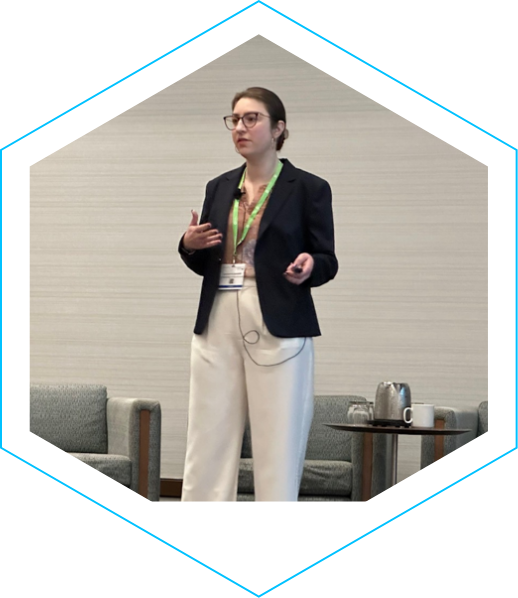
How to Develop Organometallic Catalytic Reactions in API Synthesis
Event overview
We are delighted to provide this online course, it will be divided up into four sessions using an online platform. Dates and times are as follows and set in UK, BST (British Summer Time):
Monday, October 16 | 2.00 – 5.00pm BST
Tuesday, October 17| 2.00 – 5.00pm BST
Monday, October 23 | 2.00 – 5.00pm BST
Tuesday, October 24| 2.00 – 5.00pm BST
If you have helped develop processes to prepare an API, you have certainly come across catalytic reactions such as C-C or C-N cross couplings, homogeneous catalytic hydrogenations, olefin metathesis reactions, carbonylations and the like. The literature is full of accounts showing that these reactions are difficult to scale up, and sometimes fail in the plant; therefore, it is likely you have experienced these problems. What makes these reactions so difficult to scale up is the fact that the catalysts are unstable and their presence cannot be monitored by the traditional methods, at least if the catalyst is used in very small amounts, which is always the case in a practical catalytic reaction. Therefore, one must resort to some level of kinetic analysis.
With some understanding of the rate law, you will be able to rationally affect important parameters like resting state of the catalyst and rate-determining step; you will be able to select the best ligand at the right concentration for a high-turnover process, you will learn to eliminate performance-limiting off-cycle species, and select the best auxiliary reagent at the appropriate concentration. Many examples will be provided, showing how a certain level of kinetic analysis contributed to a successful scale up, or how such analysis would have helped develop a better process. Specific approaches used to obtain kinetic information will be discussed, including a powerful tool called Reaction Progress Kinetic Analysis (RPKA). All these analyses require surprisingly little effort and theoretical sophistication.
The course will demonstrate that some basic level of kinetic analysis can help optimize the reactions and make them more robust, helping you transfer efficient processes to the plant with increased confidence.
Course Outline
- The importance of catalysis in the pharmaceutical industry
- Brief introduction to the field of catalysis
- Basic concepts: turnover frequency, turnover number, catalyst resting state, rate-determining step
- Why are catalytic reactions so difficult to scale-up?
- Why do we need (some) kinetic information?
- Simple kinetic laws and how to obtain them
- Traditional methods vs. accelerated methods (RPKA)
- Pre-equilibrium and steady-state approximations. Saturation
- Use of precatalysts: why and when?
- Catalyst inhibitors and catalyst decomposition processes
- Ligand inhibition
- The myth of catalyst recycling
- Homogeneous vs. heterogeneous mechanisms: pitfalls of the black-box approach
- How to approach the reaction: literature analysis
- How to run the reaction: catalyst screening for TOF, TON, selectivity
- How to optimize the reaction: mechanistic information vs. Design of Experiment
- How to develop the reaction: robustness studies
- Removing metal impurities
- The future is here: sustainable catalysis concepts
- Case studies: application of the principles discussed in this course
Benefits of Attending
You will acquire useful information to develop a catalytic reaction without delving into complex physical chemistry. You will develop tools to optimize and make your reactions robust, so that you will be successful in transferring them to the pilot plant and beyond.
Who Should Attend
Anyone interested in developing practical catalytic reactions using organometallic chemistry. Ideal for less experienced process chemists, but also for those with many years of experience who would like to learn to scale up catalytic reactions with more confidence. It can be useful also to medicinal chemists who need to carry out their catalytic reactions on larger scale.
What's Included
he course fee includes:
- Link to watch all four live sessions
- Electronic version of the course manual*
- Course certificate
For this on line course, there will be no recordings available and *the e reader manual is NOT printable or downloadable (due to copyright). If you prefer a hard copy of the manual you will have the opportunity of purchasing a professionally printed hard copy during the booking process.
How to Develop Organometallic Catalytic Reactions in API Synthesis
Fee info
It was good. Never visited a Scientific Update conference, but will get it on my priority list. Very good – like the set-up, flow and topics. Very interested in process development.
Organic Process Research & Development Conference Delegate 2023
Thank you for the excellent conference. I enjoyed the scientific content and the networking opportunities. I will definitely recommend this conference to my colleagues.
The Formulation and Drug Delivery Congress Delegate
Become a speaker at one of our events
Share your expertise with a global audience of industry professionals. Scientific Update is continually seeking thought leaders and industry innovators to speak at our renowned conferences and training courses.








